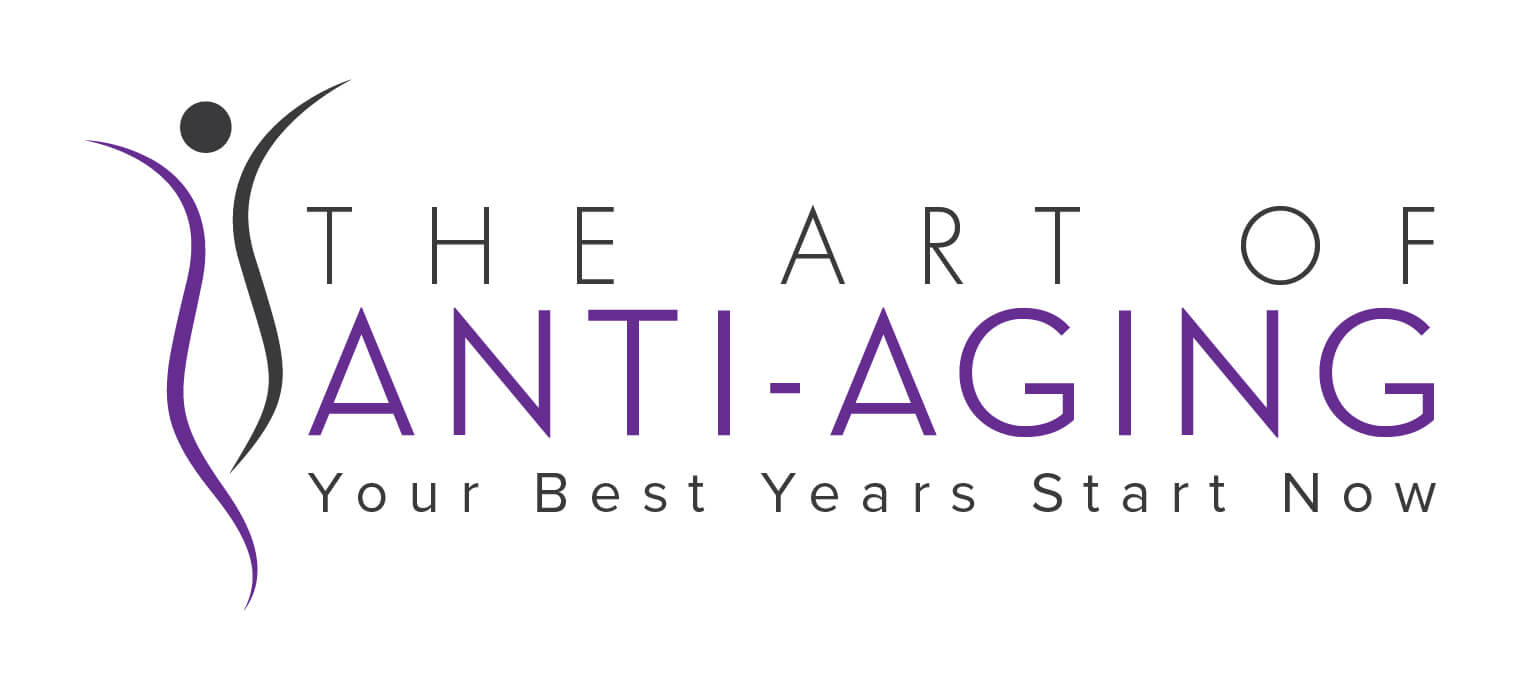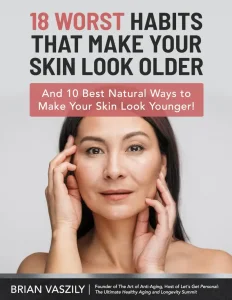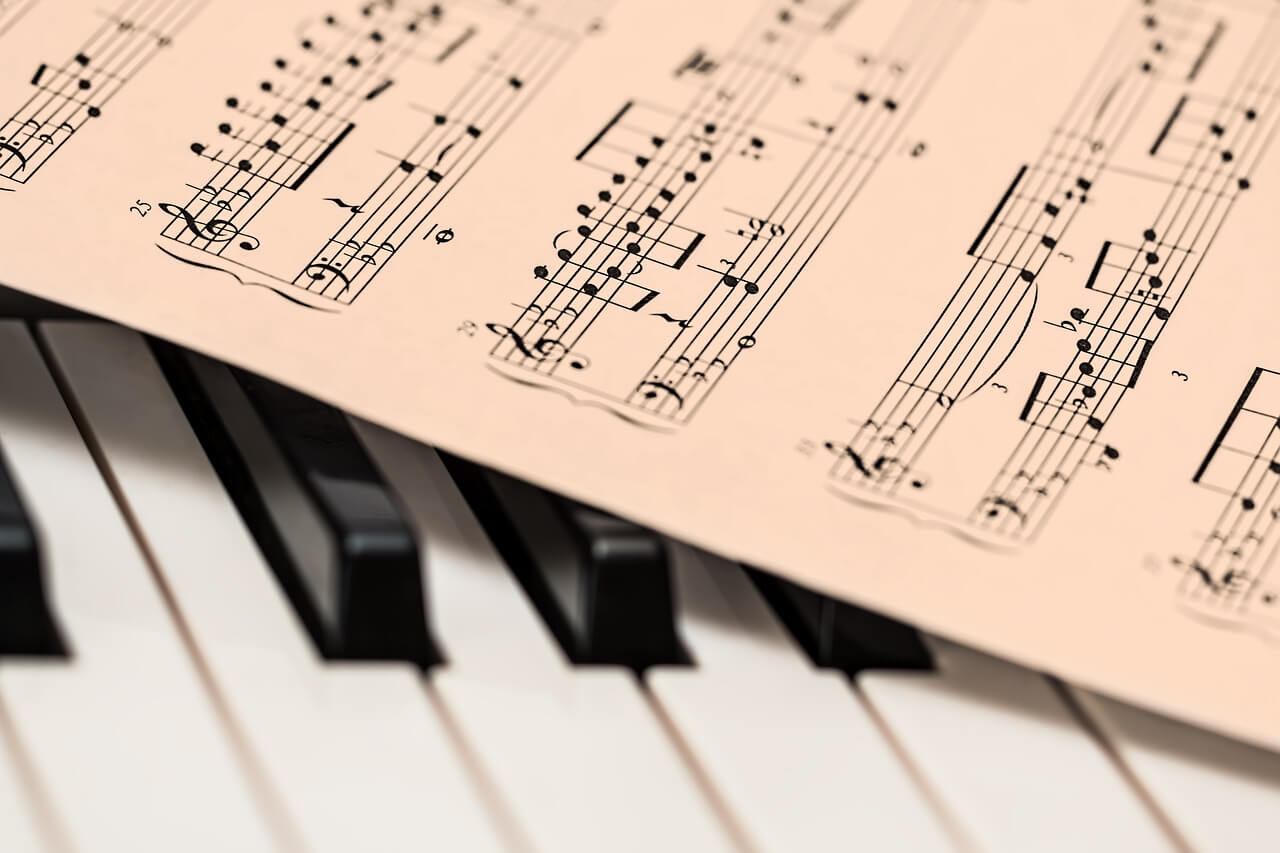Most people have an instinctive love of music. We may differ on which genre is our favorite (and whether or not we can sing in tune), but the benefits of music are there for us all.
You probably know some of them offhand, just by the way you feel after listening to your favorite song. However, music goes much deeper for your health than just a perception of feeling better. It actually influences your brain and body in powerful ways.
Here’s more on the therapeutic potential of music and specific ways it can boost your health.
How Music Works (What We Know & Don’t Know)
Music has a very ethereal quality to it, making it seem almost set apart from the physical world. But like everything else we can sense, it has a specific way of interacting with your brain.
Basically, all sounds, including music, are vibrations that travel through the air and enter your ear canal. Experts believe that they are then transmitted to the brain stem as an electrical signal that goes through the auditory nerve. In the case of music, your brain translates individual sounds and notes into songs and rhythms.
That being said, researchers still aren’t sure exactly how- or why- what we call music has such a powerful effect on the brain. Or, for that matter, what causes people to like a certain style of music and dislike another.
There is, however, absolutely no doubt that music has a very unique effect on brain activity.
Studies done with MRI technology have repeatedly found that both listening to and creating music light up certain areas of the brain. Notably, the scans showed remarkably similar patterns based on music preference rather than type of music.
This is something to keep in mind as you read more about the benefits of music. While the type of music does have some influence, ultimately your favorite songs and genre are going to affect you the most.
So don’t let anyone convince you that your taste in music is poor! Your brain knows best.
The Benefits of Music for Mind & Body
Stimulates Your Brain & Boosts Recovery

As shown by brain scans, one of the biggest effects of music is to stimulate your brain. Research is still ongoing in this area, but it’s clear already that there is a lot of complexity involved.
Music preference, music style, tempo, lyrics vs. no lyrics, and how complex the music itself is all seem to play a role in how your brain is affected. Also, brain activity in areas associated with vision decreases when you are focused on listening. This indicates that music can ‘fire up’ your brain in ways other activities can’t.
An area where this could prove tremendously helpful is recovery from brain injury.
As a case in point, studies indicate that music therapy could be a powerful aid for stroke recovery. One study found that it can be particularly beneficial in the early stages after a stroke. Those who listened to music for a few hours each day had better recovery of verbal memory and attention compared to audio books or no listening material.
Improves Learning and Memory
With its stimulating effects, it should come as no surprise that music can boost memory and learning ability. Many very different studies have demonstrated this clearly.
In one study, participants who listened to classical music while they worked outperformed those who listened to no music or white noise on a memory test. The researchers also noted that processing speed improved the most with upbeat music.
Other research has revealed that putting something you are trying to memorize to music can give you much better recall accuracy. This could explain why remembering the lyrics to a new song is easier than recalling a lecture.
Also, while music doesn’t seem to reverse memory loss in those with neurological disorders, it has been shown to slow cognitive decline and improve working memory in certain dementia patients.
The bottom line? Keep listening to music regularly as you get older!
Boosts Your Mood & Lowers Stress

The benefits of music for mood and stress are practically self-evident. The right song can take you from grouchy or tense to uplifted in just a moment or two. In fact, researchers have found that managing or changing mood is the number one reason people listen to music.
So why does music work so well for mood?
One reason is that more of the mood-enhancing chemical dopamine is released in your brain when you are listening to music. There’s also evidence that levels of cortisol (the stress hormone) drop in response to music, which explains its stress-lowering potential.
In this case, music type almost certainly makes a different (as well as personal favorites). For example, listening to sad music is unlikely to lift your mood like an upbeat tune will.
May Reduce Symptoms of Depression & Anxiety
When combined with traditional therapies, music seems to have the power to improve symptoms of anxiety and depression.
Multiple studies have shown that music helps people to feel less anxious, even though the effects are usually temporary. This seems to be especially true when people are facing severe circumstances, like a critical illness or surgery recovery.
Due to its dopamine-releasing properties, music can also positively affect depression symptoms.
Research shows that it can be helpful at all ages but particularly for children. A study from Bournemouth University in England discovered that music therapy helped reduce depression in children aged 8-16 more effectively than conventional treatment alone.
Once again, genre matters in this specific instance. Sad or nostalgic songs can actually increase depression symptoms. Classical music, jazz, and generally upbeat songs seem to be most effective.
Stimulates Creativity

The benefits of music for creativity are fascinating and complex.
To start with, the stimulation of creativity has most definitely been associated with ‘happy music’ in studies. It also has the most effect on a particular type of creativity known as divergent thinking.
Divergent thinking involves coming up with multiple answers or ideas and “transforming information into unexpected forms.” It can be thought of as the more free-flowing and spontaneous type of creativity.
On the other hand, listening to music can actually impair the type of creativity needed for problem solving. This is in the realm of convergent thinking, which involves a logical process of deriving the single best answer to a problem.
From these results, it would appear that music can inspire you for creative processes like art and writing but may not be the best choice when you’re trying to solve a complex problem (or during homework time).
Good for Heart Health
Music is good for your physical heart as well as your emotional heart. In general, it has been found to lower blood pressure (systolic and diastolic) and heart rate.
However, the effects of music on blood pressure and heart rate depend on what style you’re listening to. For example, music with a fast tempo has been shown to increase blood pressure and heart rate.
But before you switch off your upbeat tunes, there’s more. The same study that reported these findings also documented that blood pressure and heart rate dropped after the music was over- to numbers below the baseline of the participants.
Fast tempo music can be good for your heart after all.
Music may also have a role to play in healing the heart. One study found that music therapy reduced stress and lowered heart rate in patients recovering from a heart attack. What’s more, patients in the music therapy group had a lower incidence of cardiac complications than those in the control group!
Lessens Fatigue & Boosts Exercise Performance

Turning on your favorite song can give you an instant energy boost- and there’s research to back this up.
Studies show that listening to music helps reduce mental fatigue (like when you’re completing a long, repetitive task). It also can help relieve feelings of physical fatigue as evidenced by a study that found it reduced radiation-related fatigue in cancer patients.
And the benefits of music go beyond simply making you feel less tired.
There’s a reason athletes and exercise lovers frequently have earbuds in their ears. Music enhances motivation before an athletic event, can help you workout longer, and stimulates you to compete or exercise at your peak. In short, it boosts athletic and exercise performance.
One study even found that listening to music during a 5K race improved running performance and inspired the athletes to run faster than normal.
Helps With Pain Management
Another fascinating side of music is that it can help to reduce pain. It’s not a treatment for pain in and of itself, but there is clear evidence that it helps decrease both acute and chronic pain (or possibly the perception of pain) and even helps lessen the need for pain medications like opioids.
Music seems to be especially beneficial when used post-surgery. Patients have reported feeling less pain with music therapy and also lower anxiety before and after operations.
Painful conditions that are difficult to treat can also benefit from the power of music.
As an example, one study explored music as a complementary therapy for fibromyalgia patients. Fibromyalgia is a very painful chronic condition that has limited treatment options. The results showed that music was able to reduce pain and improve functional mobility, which is very encouraging for people living with this condition.
Improves Sleep

Last but not least, the benefits of music include helping you sleep better- something many of us could use. Lack of sleep or poor sleep quality can lead to all kinds of health issues like brain fog, daytime fatigue, hormone disruption, mood disorders, and more.
Music is truly one of the oldest sleep remedies (think lullabies), though often overlooked in modern medicine.
Yet, studies have shown that the right kind of music can improve sleep for all ages. It helps to send both infants and young children to sleep. It also works for a wide range of adults, aiding both sleep quality and the ability to fall asleep.
In fact, some studies on music and sleep have had some incredible results.
One found that playing 45 minutes of specific music at bedtime improved sleep quality in older adults on the very first night. It also had a cumulative effect, resulting in better and better sleep each night they incorporated music.
Another study found that playing music when getting into bed helped older woman with insomnia go from taking 27-69 minutes to fall asleep to only 6-13 minutes. That’s quite a significant difference!
Experts still aren’t sure why music has such an effect on sleep. It’s likely a combination of lowering stress, calming the nervous system, and sending specific electrical signals to the brain.
Whatever the reason, the point of the matter is this: If you have trouble sleeping and feel like you’ve tried everything, music could be the missing link.



Very informative. I do enjoy and use to enhance my mental and spiritual well being.
As a musician for 60 years, and a teacher of music for almost 50 years, I have always known the benefits of music on the heart and the brain. It’s been proven now that children who study music in school classes do better in math and other subjects. Professional conductors of orchestras and bands generally live long, successful lives. Very few of these old guys ever get dementia. Music is good is so many ways for healthy lives.
Thank you Karen, I’ve always loved all kinds of music. Depending on my mood; it goes from classical to jazz (mostly) and rock and meditative music. I so agree that it’s beneficial in so many ways. I play jazz while doing a live cooking show on Zoom. It’s fun and lends a sort of rhythm to my food prep.
Playing beautiful classical music, like Mozart, helps during the birth of a baby. It calms the mother and soothes the baby who is welcomed to the world with harmonious vibrations and sounds. It helps even more if the baby is played similar music during pregnancy and then hears the same sounds after it is born. Don Campbell’s Mozart Effect explains this.
If it’s appropriate for me to share my recorded music, please enjoy: http://www.reverbnation.com/sharonmarman
I hope they don’t mind. Thank you for sharing. AND thank you for your service to the USO and Veterans.
Thank you! It’s a 5-star app. Happy to hear you. Blessings! María
Beautiful! Love your piano playing. Thank you for sharing.
Thank you for sharing your music. It’s beautiful.
Love your music, engaging and relaxing. Thank you Sharon Marman
Jennifer Dreaper
I love music – almost all kinds!
When our children were home music was a constant. No seatbelt laws and they all took turns sitting on my lap and learning to lead the music and find the down beat as we listened to Mannheim Steamroller (our only agreed upon music style for all 8 of us) in our one-ton customized van . Wonderful memories come through music!
Yet another excellent article, Brian. The power of music is greatly underestimated.
“If you want to find the secrets of the universe, think in terms of energy, frequency and vibration.”
― Nikola Tesla
Energy, vibration, and frequency. It seems energy springs forth into, and is embodied, by motion (vibration). The differing rates, or frequencies of vibration, registers their influences upon our senses.
As a Christian and creationist, I see the unseen Father, embodied by the Son, and the life of the Son experienced through the Spirit, in Tesla’s statement.
As a Serb myself, thanks for citing Nikola!
Mitch I also relate to Tesla. I have experienced the secrets of the universe with music going beyond the spirit and deep within the soul taking me beyond this physical world. The visions created are in comprehensible to anyone who is unable to understand that which can not been seen, touched, or proven. I would be lost without music for it increases my energy that I may feel the frequencies within the vibrations that control my brain and thoughts. Music, a beautiful gift to all mankind and a blessing.
PS
I have Wholetones music and it is healing and beautiful!
I enjoyed your music article very much as I immediately thought of my reaction to pan flute
tones. My reaction was instant soothing calm and peace, even more so than classical music
including sounds of nature.
Love my music.
Many nights my mother would play us to sleep by playing songs like Clair du lune on the piano. It was my favorite thing about childhood. I love jazz but was trained classically as a pianist. So both my favorites to listen to. When I as in college the University of Michigan has a program I was in called Musical Therapy. It was a double major in music and psychology and I worked with Austin children. It’s proven that studying music in young children increases their math abilities. It just makes me happy. Now my favorite morning music is Karen Drucker. Great way to start the day.
Micheal Tyrell .. wel Tyrell does come into one of my favorit albums . and that is Blade runner from Vangelis Papathanasio , also the film music . I get goos bumps by nearly every song. so I wil look up Tyrells whole notes. and thank you for the artikel. plus I get bumps from the mongolian fiddle , what I am trying to say is that music altho uniform is also very personal
That is a fabulous soundtrack!
New World Symphony also recorded it. Both are stellar.
I found this article informative and helpful. I have always enjoyed music from playing an instrument in grade school through college, singing in choirs and a choral society. When entertaining, easy listening is good and relaxing. I enjoy classical the most even driving if it isn’t very slow and quiet even like a dirge. For distance driving I enjoy lively, uplifting music, with or without lyrics. It really does affect your mood.
Music is definitely soothing and does help with severe chronic pain. I could not get through ome days without music. It does calm the nervous system. Except for the very worst days, the effect is less but still helpful. Adding sounds of birds and water helps a lot also. To think about: we were made with appreciation for music. There’s no real reason for birds to sing all the time other than when courting a mate. The water didn’t have to make a sound, nor the calming sound of a breeze. Makes sense music affects us, we were created to enjoy all the beautiful sounds of of the animals, birds, brooks and waterfalls.
Thanks for your informative article.
I like Camille Saint-Saëns – Aquarium at https://www.youtube.com/watch?v=YVpl-RNzdE4
Your article was very complete offering many
good, helpful reasons to listen to music of all
types.
We enjoy music a great deal. I am a trained
soloist and have been singing since I was 9 years of age.
My husband is 93 years old and has the greatest memory. He performed for many years in Europe and in Mexico and So. America as a classical pianist. Also played viola in the San Diego symphony. In his later years, he continued to play piano and violin as well as taught many students. His head is full of so many facts about music that it amazing anyone who talks to him. He now plays chamber music 2 times a week as well as performing with a Violinist in Senior homes. Our primary doctor has said he should donate his brain to science as he is so amazing.
Thank you for sharing Dee. This is wonderful and inspiring! There is no question that music has played a huge role in my life and my mental health. I have never played an instrument and don’t sing well but that never stopped me from belting out tunes from the time I could. And I’ll be doing it when until I die.
And I’ll be doing it when until I die.
I’m a Banjo player – amateur – and know how soothing listening to music is. Amazing Grace brings tears every time I hear it. Not Irish, Going to Ireland the first time I fell in live with some of the Irish songs reallly not Banjo music. Good article. I’ve heard of the whole note theory but have never heard it but will now look into it. These are articles that I like.
Then, you haven’t lived, until, you’ve heard me play, Dueling Banjos, on my trombone.
So, is there anything analogous to music which works as well for the deaf? (I don’t personally need to know, yet — just curious.)
Yes, It is called Brain Entrainment or Brainwave Entrainment. The lower frequencies associated
with relaxation and sleep are not “heard” but are picked up by the brain anyway. You can learn more about it by doing a Google search using those search terms.
Pythagoras (he of the famed hypotenuse theorem) is credited with originating the phrase “the music of the spheres” after meditating often on the solar system for a period of time. He said the planets sit outward from the sun in the same mathematical ratios as the notes in the octave.
The physical world around us demonstrates similar dependence on these ratios (honeycombs, the spacing of leaves on plants) and even our bodies. Music stimulates harmony in our operating systems, nudging us toward toward homeostasis and supporting immune function.
Music is the antidote to our challenges at this time.
A beautiful album is Otherworld by the group, Nessamusic.
Yeah for music!!!
I taugt lenguajes with special music like violin music from Mozart and special music from Bach and otter special classic composers. People learnt twice as fast with the music as those who studied without thIs music.
On YouTube, I get a video of the classics, for over six hours, which, when I play it softly, seems to do the trick.
I like the range, variety, harmonics, contrast, versatility & creative potential of the piano.
Excellent article! I have enjoyed reading it.
Many people like me take many hours listening bad news, reading, working and the end of the day we realize we didn’t listen any good music. Your article impulse me to change. Thank you for that.
I’m from Lima, Peru. Sorry about my English. Even though I enjoyed most of you dad jokes.
Each morning when I rise I play music as I prepare for the day.
This is usually classical but there are a wide range of styles that I enjoy
The last thing I need is news of death and destruction but the mental and spiritual
uplift of beautiful sound.
When my sis-in-law & I bring our little music programs to people in retirement homes it’s amazing how they perk up & join in on the sing-a-longs that were popular when they were young.
That’s similar to what I once read about memory-impaired people who were brouht to listen to music from the fime of their youth, who with that had a memory-enhancng experience!
ti was *brought, of course. And from the *time!
So true! I played the piano many, many times years ago in nursing homes and when I came in, often the people were drowsy and falling asleep. As soon as I started playing songs of their era, they became bright-eyed and sang, and it was delightful.
i run a fantastic music venue in LA (the Write Off Room) and am a constant witness to the good music does for the audience and the players! Music heals and overjoys!
I have this Whole Tones CD they were a gift. I totally believe that Music is used in the process of excellent health and healing.
Very interesting article, I usually listened to piano music when I wakeup around 2 or 3 in the morning and it help me a lot. Thank you.
I heard years ago that music is very good for the person. In growing up from small, Mum would have the radio on in the kitchen when she was inside. (She loved gardening). Hearing certain songs does stand out in your mind. I can still rememeber when I first heard Flying Blue Angels over the radio when I was small. I still really enjoy hearing it today.
Over the news years ago, I also heard of a certain child who would not speak for years. After his ister starting playing her flute for him to hear, over time the little boy started to speak.
It is wonderful how music engages the human brain to do certain things.
Listening to my favourite music while walking on the treadmill enhance my exercise and lower
my blood pressure.
Thanks for your detail information about the benefits of listening to joyful, relaxing music.
I was captivated reading this superbly detailed article about
Music, for I found it to be
Interesting, informative, educational and above All a learning experience. I love
Music and I have passion for it.
I enjoy varieties of music, be it
Pop, opera, classical, jazz, etc. I believe that music is a tonic that
Aids In one’s well being, health, and healing.
I find humor just as good, for heart health.i enjoy your dad’s
Jokes, so keep it coming.
Sushi.
Thank you very much for this Brian. Very informative. I really enjoy listening to music. Continue to be a blessing to people. God bless always!
very helpful. Reminder to include benefits for our pets. When training a puppy to adjust to day/night and when to go to sleep on our schedule, I happened upon Music my Pet CD (on Amazon) The Mellow Melodies soon had all of us sleeping soundly. They even have a holiday release. KH
Music is wonderful – not only for the melody, tones, resonance, vibration of the music, but the lyrics can be healing and can help people process and heal from trauma. As a singer/songwriter I have used songwriting to help me process my own life stories and traumas. And as I share with others, the songs and stories, my hope is that they can help others process and heal as well. I would be happy to share a song with you that I wrote called “We All Choose”: https://soundcloud.com/stacey-fitzgerald-897385953/we-all-choose?si=c1ffaf87a09c4aeeae74c2716cc8d9da&utm_source=clipboard&utm_medium=text&utm_campaign=social_sharing
I hope it blesses you all!
Thank you for sharing your song.
Oh, Stacey, you should have had a disclaimer to have one’s tissue in hand. You’re a kindred soul. I don’t know how you packed so much truth in one song but one thing I know, I must have this song in my life. I want to learn it and share (already posted in my Facebook account). I choose love. Thank you so much for sharing your beautiful creation!
As a former music teacher of grades K-12, and then as a University Director of Music Education, I have seen music touch and transform the lives of students, who then go on to do the same for their students. Also, as a Church Organist, Choir Director, and Bell Choir Director, I’ve had many, many parishioners tell me that music is one of the main reasons they attend church.
I have also found that the music in a church service is often more touching, moving than hearing a preacher preach.
AMEN !!!!!!!!!!
I found that Mozart would get me out of my down moods back in my 20s. Rock music will physically get me moving such that I’m more productive doing chores. Music, the great motivator!!!!
I spend 1-1/2 to 2 hours every morning dancing, doing weights, yoga, chi gong and bike while watching music shows, babysit sweet grandkids in the afternoon and sing on zoom with friends 5 evenings a week. (I eat mostly veggies.) I’m trying to stay healthy as I turn 77.
In 1986 I created an exercise regimen, Bodymind Harmony, that combined music, positive words and exercises for over all conditioning and positive thining! Music is what ties it all together!
Thank you.
Reading this article, I realized just how much music fills my life and always has. As a singer, I told someone recently, “I don’t feel I’m really breathing unless I sing”. I don’t think I can adequately articulate just how huge music is in my life and in my very being.
Not mentioned so far is Reggae music. The late Bob Marley aptly described Reggae as “spiritual music.”
Thank you Sharon for sharing your piano performance, it was beautiful.
I love Old Song and Rock musics.
I like to listen to music, sing and play the violin.
Hi Brian! And everybody else out there!
Your article really hit home for me. Some years ago I experienced a life-death brain surgery and was told that if I made it thru the surgery, I would probably not get better, most notably, never regain my speech. Long story short, I DID get enough better to LOVE LIFE once again! I used music therapy to do so, and even wrote a book about it. (I am now, of course, even more passionate about music.) The book is still on amazon, entitled FACING THE ULTIMATE FEAR: A NEW FUTURE. The first chapter appears as the “Look Inside” feature. There is much more to the book than just music therapy, but if ONE can do it, ALL can do it. A nice thing to remember, even if only for a simple headache!
Love my piano playing, albeit not to grade eight classical.
11/26/23- 3:29am
WOW Brian! Thank you so much for your wonderful article! It jogged my memory that my mom’s doctor used music during her breast cancer surgery over 30 yrs ago, that music might be a solution to calming my sensory seeking two year old granddaughter, and how much music has played an overall huge part in my life. In addition, now I can’t wait to discover more through your readers comments! Thank you to all who shared, and again to you Brian for being the catalyst in this whole process for me. Christine